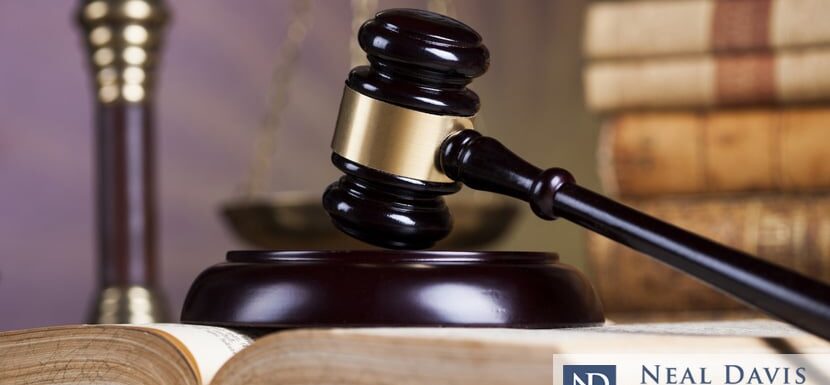
As you may have heard, a person who faces criminal charges sometimes can get a plea deal or a plea bargain, negotiated out of court by prosecutors and their criminal defense lawyer, in order to face fewer charges, less severe charges or reduced punishment.
But can a judge reject such a plea deal?
The answer is yes – as evidenced in recent national news when U.S. District Judge Lisa Wood of Georgia rejected pre-trial plea agreements in the federal murder case involving 3 men accused (and convicted in state court) of killing Ahmaud Arbery.
As Reuters reported, the federal judge rejected plea agreements which had been reached for 2 of the 3 men, who’d already been convicted in state court of murdering Ahmaud Arbery. The judge said she wasn’t willing to be bound by the 30-year federal prison sentences set in the plea agreement for the case, which involves federal hate-crime charges.
That means the parties must return to court with a more acceptable plea deal when hearings resume, or prepare for trial.
State judges can reject plea deals, too
To reach such plea deals, defendants may agree to plead guilty if prosecutors agree to reduce their punishment.
That is often achieved by reducing the number of charges against a defendant, or perhaps by reducing the severity of the charge to which the defendant agrees to plead guilty.
Prosecutors can also agree to ask a judge to deliver lighter sentences, especially when the defendant pleads guilty as charged.
But even after such a plea agreement is reached, the plea deal can be rejected, whether by a federal judge, as in the Arbery case, or by a state judge, as can occur in Texas.
On the other hand, some plea deals may not be subject to a judge’s approval. For instance, prosecutors may be able to drop a charge without court approval if the plea bargain involves a guilty plea for a lesser offense.
Most criminal cases end with plea deals
Just as the majority of personal injury lawsuits are resolved via out-of-court settlements with no need for a trial, most criminal cases end due to plea deals.
According to the American Bar Association:
“Many criminal cases are resolved out of court by having both sides come to an agreement. This process is known as negotiating a plea or plea bargaining. In most jurisdictions it resolves most of the criminal cases filed.”
The ABA also notes advantages for both sides in making plea bargain agreements.
These include:
- Saving the time and expense for what could be a lengthy trial;
- Sparing both sides the uncertainty of going to trial;
- Sparing the court system the burden of conducting a criminal trial for every criminal charge made; and
- Sparing defendants the risk of harsher punishment, as well as possible publicity for their trial.
Either side – the defense or the prosecution – can initiate negotiations for a proposed plea bargain or plea deal. These negotiations are largely private and unknown until presented to the court.
Only the prosecution can present such a plea deal to the court for approval. And again, in most cases the judge is not bound by the plea deal, but rather must approve or deny it.
Are most plea deals approved?
Even though state and federal judges have the authority to reject plea deals, most plea deals are approved by the courts.
Reuters’ report on the Arbery case called the judge’s rejection of the 2 plea deals a “rare move.”
“Rejections can occur if judges believe the agreements do not adequately address the nature of the crimes, the rights of victims, or the interests of the public,” Reuters reported. But it went on to say that “Judges rarely reject plea agreements.”
In fact, according to the Bureau of Justice Assistance, an arm of the Department of Justice, 90 to 95 percent of state and federal cases are resolved by plea bargains (which, if necessary, are approved by the courts.)
When to hire an experienced criminal defense lawyer
Just because plea bargains are common to resolve criminal cases doesn’t mean every defendant gets a highly advantageous plea deal. It’s important to be represented by the best criminal defense lawyer available to fight for the most favorable outcome.
With an understanding of the evidence and the case against the accused, a defense attorney can strive for the best deal possible in negotiations with prosecutors. Our law firm has been able to get charges dismissed or dropped before a trial.
From charges of domestic violence or child pornography to sexual assault or white collar crime, contact an experienced criminal defense lawyer today at the award-winning Neal Davis Law Firm. We can arrange a confidential consultation for your case and, if you choose, we can fight for your legal rights.

